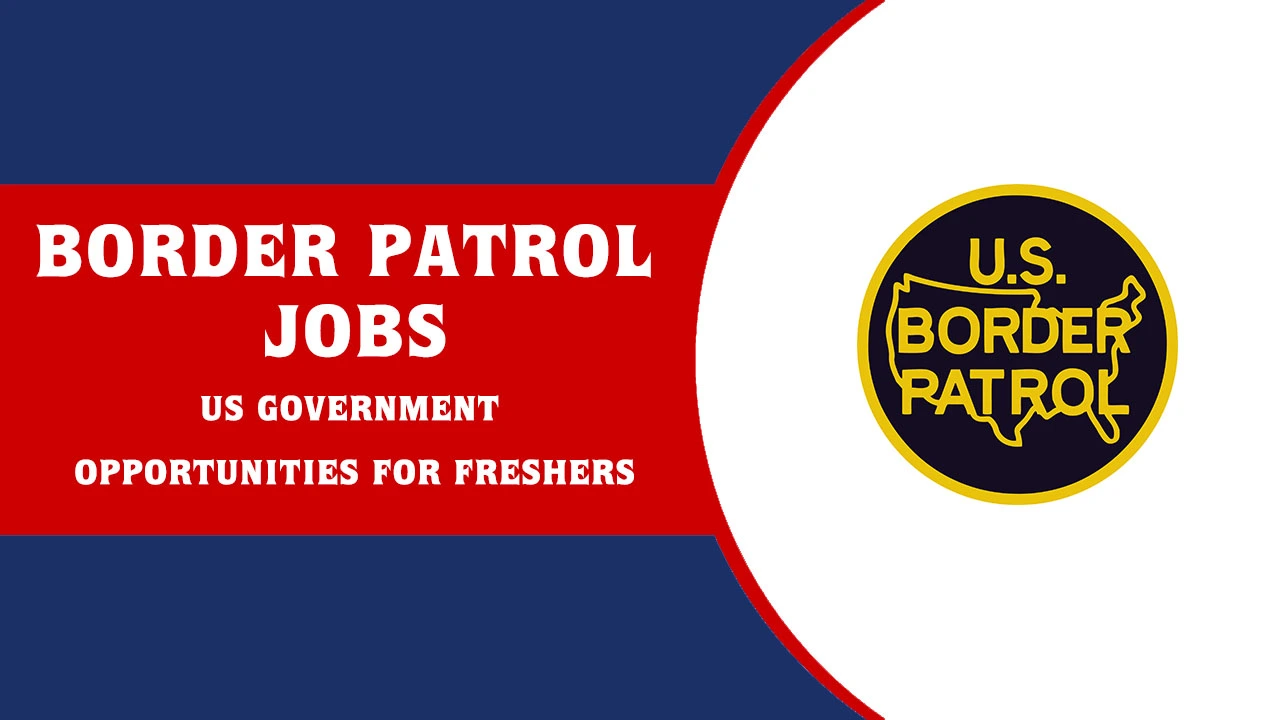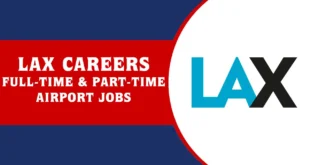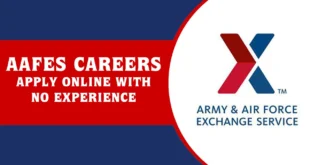Think you’ve got what it takes to stand watch over the country’s borders and ensure safe trade and travel? You can start by applying for Border Patrol Jobs. Protecting a nation’s borders is more than a duty. It is a career that embodies responsibility, courage, and service to the people. For those who are attracted to public safety and national security, working in border enforcement offers an opportunity to directly contribute to safeguarding the United States from illegal activities, contraband, and potential threats.
The demand for Border Patrol careers in federal enforcement roles has steadily increased in recent years. This is influenced by changing national priorities and growing concerns about possible border threats. Government positions, especially in homeland security, offer not just career stability, but also a range of benefits that are often unmatched in the private sector. As more individuals look toward careers that provide both purpose and protection, federal jobs have become a prime focus for job seekers from a wide range of backgrounds. So, don’t miss your chance to submit an application!
For More Latest Government Jobs: Click Here
| Company Name: | Border Patrol |
| Job Locations: | United States |
| Last Updated on: | August 15th, 2025 |
Border Patrol Jobs in United States 2025 | Entry-Level Vacancies

Overview of U.S. Customs and Border Protection (CBP)
U.S. Customs and Border Protection is one of the largest and most complicated divisions of the Department of Homeland Security. It was formally established in 2003 through the Homeland Security Act. However, its origins trace back to early customs services that date as far back as the late 18th century. As a modern agency, it performs various missions that include border security, trade enforcement, immigration processing, and anti-terrorism efforts. The CBP’s work is extensive, and it serves as the front-line defense of the United States. The agency is led by Troy A. Miller, who serves as Acting Commissioner of U.S. Customs and Border Protection.
The agency operates with a workforce of over 60,000 employees, including Border Patrol Agents, CBP Officers, Air and Marine Interdiction Agents, and support administrative staff. These individuals are strategically placed at more than 300 ports of entry on land, sea, and air. The scale of the operations is impressive. CBP is responsible for patrolling nearly 6,000 miles of international land borders and more than 2,000 miles of coastal waters. In a single day, it processes over a million passengers and pedestrians, inspects more than 78,000 truck, rail, and sea containers, and collects millions in trade revenue.
Work Schedule and Lifestyle
Life as a border enforcement officer is anything but ordinary. The job demands flexibility and adaptation, especially since the work does not follow a standard 9-to-5 routine. Officers and agents rotate through a variety of shifts which include early mornings, late nights, weekends, and even holidays. The unpredictability of cross-border activity requires full-time vigilance, and this means being available at all hours. While shift schedules are set in advance, they often rotate, and agents may be called in during emergency or national alerts. Work-life balance changes based on duty station, but most employees learn to manage personal time around mission demands.
Travel is another important part of the role, especially for agents stationed in remote or high-priority regions. Field personnel are often required to move between sectors or support operations in different geographical areas. Assignments might take them from urban border points to rural desert stations where staffing is limited but surveillance is a necessity. In some cases, agents are temporarily deployed to assist with large-scale enforcement operations or humanitarian efforts at other locations. This movement not only enhances their experience but also ensures full coverage of potentially dangerous zones.
Duties and Responsibilities
Border enforcement professionals have a challenging and stressful job. Their responsibilities stretch beyond simply checking identification or monitoring fences. Every day involves strategic coordination, situational awareness, and quick decisions. Whether positioned at an entry point or patrolling miles of isolated land, these officers are entrusted with upholding national security and enforcing federal law. Some of the key responsibilities include:
- Patrolling international borders, often in remote environments that require traveling on foot, horseback, or specialized vehicles.
- Apprehending individuals and inspecting cargo, ensuring that all cross-border movement is lawful, and detecting concealed contraband, narcotics, or unauthorized travelers.
- Working with drug enforcement, anti-terrorism, and immigration task forces to investigate and respond to intelligence related to foreign threats.
- Utilizing both field work and remote monitoring tech, including surveillance cameras, drones, ground sensors, and radar systems, especially in risky or low-traffic areas.
Different Types of Border Patrol Jobs
U.S. Customs and Border Protection offers several distinct career tracks under border enforcement. Each role contributes to maintaining national security and lawful trade. Depending on their skills, training, and interests, applicants can choose a path that best fits their strengths. From land patrols to air surveillance, these careers are wide-ranging and interconnected. Some jobs even fall under the category of remote border patrol. This is particularly relevant in regions where physical infrastructure is minimal, and technical surveillance is the frontline of defense.
Border Patrol Agent (BPA)
This position is one of the most recognized and rewarding careers within the agency. BPAs are mainly responsible for patrolling thousands of miles along the northern and southern borders. They monitor illegal crossings, intercept unauthorized individuals, and prevent the trafficking of goods and people. Work environments range from urban checkpoints to remote deserts and mountain regions, where agents operate ATVs, horses, and helicopters to cover the terrain. BPAs may be deployed in high-priority zones such as El Paso, Texas or Yuma, Arizona, where illegal crossings are more frequent and patrol coverage is of high importance.
CBP Officer
CBP officers focus on managing the official ports of entry. Their daily duties involve screening international travelers, inspecting vehicles and cargo, verifying documentation, and enforcing customs and immigration laws. These officers operate at airports, seaports, and border crossings and are often the first federal representatives travelers encounter. Their presence ensures that no illicit items, prohibited goods, or unauthorized individuals enter the country. While less physically demanding than a BPA role, the job requires high attention to detail, strong communication skills, and legal knowledge.
Air and Marine Operations
This branch handles the air and water borders of the country. Agents in this unit pilot aircraft, patrol coastal waters, and monitor large vessels and private planes. They work closely with other enforcement agencies to stop smugglers, detect illegal air entries, and conduct surveillance missions. These jobs often require a military or aviation background and are well-suited to those with tactical and technical experience. The positions are especially important when it comes to covering areas where ground surveillance is impossible, such as the Florida coast or the Great Lakes region.
Agriculture Specialist
This role involves scientific expertise and border enforcement. Specialists inspect agricultural imports to ensure they meet U.S. safety and biosecurity standards. They detect invasive species, prohibited plants, contaminated goods, and pests that could threaten domestic agriculture. Most work at ports of entry and require specialized training in plant pathology, entomology, or agriculture. While not a patrol role, it is fundamental to the security of food and the health of the public.
Many of these jobs are offered in less populated or logistically challenging areas, which fall under the remote border patrol. These postings include isolated desert stations, mountain outposts, and temporary field offices where the infrastructure is minimal, and self-sufficiency is necessary. Officers in these locations depend largely on surveillance tech, satellite communication, and drone support to monitor extensive stretches of unguarded land.
Entry-Level Border Patrol Jobs
Entry-level roles within the agency are specifically designed for individuals seeking to start their careers in federal law enforcement. These positions usually begin at the GL-5 or GL-7 pay scale and do not require prior law enforcement experience. High school graduates, college students, and military veterans are strongly encouraged to apply, especially those with bilingual skills or experience in physically demanding environments. The agency provides full training through its academy, which includes classroom instruction, firearms training, legal education, and fitness conditioning. This makes it ideal for those ready to serve but new to the profession.
Locations That Frequently Hire
In some areas of the United States, Border Patrol careers are in high demand due to their geographical location and transborder operations. These locations often have remote outposts or limited staffing availability, which makes them ideal for hiring new agents and officers. Whether it’s a strategic border town or a checkpoint near key transport routes, these areas are perfect for those seeking a federal role with real impact. Applicants living nearby or open to relocation may find promising opportunities by targeting these high-priority regions.
Coffeyville, KS
Coffeyville is not a traditional border town, but its accessibility to larger cities and transportation hubs in southeastern Kansas puts it on the radar of federal law enforcement. From time to time, surrounding regions post openings for border enforcement support, especially for temporary assignments or task force collaborations. Those living in or near Coffeyville who are open to relocation may find a simpler entry into the federal system. This is done by applying through Kansas-based announcements or seeking nearby training opportunities.
Independence, KS
Independence, located just north of Coffeyville, shares similar characteristics with its strategic position near highways and interstate movement corridors. While not on an international border, its closeness to large logistical centers can make it a point of interest for federal law enforcement operations. Candidates from Independence, KS, who are looking to enter the agency can often find postings that support national hiring initiatives, especially when the agency is filling roles in rural or underrepresented regions.
Minnesota
With its shared border with Canada, Minnesota contributes to securing the northern boundary of the United States. This region features both urban crossing points and rural areas, which requires a combination of on-site and remote border patrol jobs. Positions in Minnesota often involve patrolling forested areas, monitoring water crossings, and supporting operations in places like International Falls or Grand Portage. Those with strong winter endurance and familiarity with rural environments may find rewarding long-term careers in this northern region.
Salary and Benefits
One of the main reasons applicants choose Border Patrol careers is the competitive salary package. Their salary begins at an attractive base level, with numerous ways to boost pay through experience, location, and skill sets. While ensuring equality across all government departments, the agency follows the General Schedule (GS) and Law Enforcement Officer (LEO) pay scales.
Entry-level agents usually start at the GL-5, GL-7, or GL-9 levels depending on their education and work history. With annual promotions, many will move up to GS-11 or GS-12 within a few years. For example, a first-time hire at the GL-7 level can earn around $50,000 annually, with the potential to reach over $100,000 including overtime and locality pay after several years of service.
Bilingual applicants are often eligible for bonus pay, especially when working in areas with a high population of non-English speakers. Additional compensation is also provided for those assigned to remote posts, where staffing is challenging and living conditions are more isolated. In addition to base pay, agents receive a comprehensive benefits package, including:
- Federal retirement plans with both defined benefits and contribution options.
- Health, dental, and vision insurance, with multiple coverage levels to suit family or individual needs.
- Generous paid leave, including sick days, vacation time, and federal holidays.
- Life insurance and long-term care coverage, with subsidized premiums.
- Tuition assistance programs and educational opportunities.
Eligibility Criteria
Pursuing Border Patrol careers requires candidates to meet a strict set of qualifications that uphold the agency’s standards for honesty, physical readiness, and national security. While the path to becoming a Border Patrol agent is demanding, applicants who understand and meet the baseline expectations are better positioned to succeed. Their requirements are listed below.
- U.S. citizenship and proof of residency status.
- High school diploma or GED completion.
- Age between 18 and 40 years at the time of application (waivers are possible for veterans).
- Successful completion of a thorough background investigation.
- Passing a polygraph exam focused on honesty and judgment.
- Clean drug test results with no recent history of substance abuse.
- Physical fitness tests, including sit-ups, push-ups, and a timed 1.5-mile run.
- Continued fitness training at the CBP Academy after initial selection.
- Spanish language skills are preferred but not mandatory, with bilingual pay incentives.
- Veteran candidates with honorable discharges often receive preference during hiring.
How To Apply for Border Patrol Jobs?
The application process for Border Patrol jobs is straightforward but highly structured for those hoping to protect the nation’s borders. All applicants must follow the official procedure through official government platforms to ensure accountability and security. The following steps will guide you:
- Click “Apply Here” to visit the agency’s careers website.
- Create an account on USAJobs.gov or the CBP careers portal and complete your profile with accurate personal, education, and work history details.
- Search for open Border Patrol Agent or CBP Officer positions by location, job series, or grade level, then select the opportunity that matches your qualifications.
- Please read its full description along with the application criteria before clicking the ‘Apply’ button.
- Upload the required documents, including your resume, proof of citizenship, transcripts (if needed), and any veteran preference documentation.
- Submit your application through the portal and ensure you receive confirmation via email. Incomplete or incorrect applications may be rejected automatically.
Summary
There is more to Border Patrol jobs than just a paycheck. It provides a pathway to a career built on purpose, discipline, and national service. With comprehensive federal benefits, job stability, and opportunities for growth, the agency provides excellent opportunities for those seeking long-term employment in public safety. From protecting international boundaries to regulating trade and travel, every position within the agency carries significant weight. It’s a career path that brings pride not just from wearing the badge, but from knowing every shift contributes to the well-being of the nation.
 Find Newest Jobs in USA
Find Newest Jobs in USA



